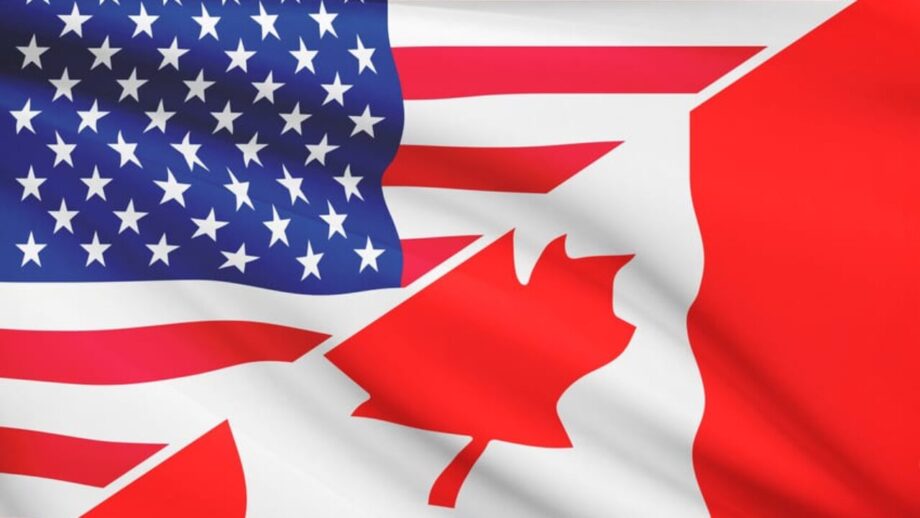Employment-Based Immigration: Second Preference EB-2

Employment-Based Immigration: Second Preference EB-2
The Employment-Based Immigration: Second Preference (EB-2) visa category is a key pathway for highly skilled professionals, individuals with exceptional abilities, and those holding advanced degrees who wish to work and reside permanently in the United States. The EB-2 category offers several sub-categories tailored to accommodate different qualifications and skills. The following overview details the requirements, eligibility criteria, application process, advantages, and associated considerations for obtaining an EB-2 visa.
1. Overview of the EB-2 Visa Category: Employment-Based Immigration: Second Preference EB-2
The EB-2 visa is part of the broader Employment-Based (EB) visa classification and is specifically designed for foreign nationals with advanced professional skills, exceptional abilities, or those whose employment would benefit the U.S. economy, cultural or educational interests, or welfare. In contrast to other visa categories, EB-2 visas emphasize candidates' educational background, exceptional skills, and the specific benefits they bring to the U.S.
Key Sub-Categories within EB-2: Employment-Based Immigration: Second Preference EB-2
- Advanced Degree Professionals (EB-2A): For individuals holding advanced degrees (a master's degree or higher) or a bachelor’s degree with at least five years of progressive work experience.
- Exceptional Ability (EB-2B): For individuals who demonstrate exceptional ability in the sciences, arts, or business that will substantially benefit the national interest.
- National Interest Waiver (EB-2C or NIW): A special provision that allows applicants to self-petition without employer sponsorship if they can demonstrate that their work significantly benefits the U.S. on a national scale.
2. Eligibility Criteria
Advanced Degree Professionals (EB-2A): Employment-Based Immigration: Second Preference EB-2
For individuals applying under the Advanced Degree category:
- Educational Requirements: Must hold a U.S. advanced degree or a foreign equivalent (e.g., master’s, Ph.D.), or a U.S. bachelor’s degree (or foreign equivalent) combined with at least five years of progressive post-baccalaureate work experience.
- Job Offer Requirement: Generally, applicants must have a job offer in the U.S. relevant to their field of expertise.
- Labor Certification: A PERM (Program Electronic Review Management) Labor Certification from the Department of Labor (DOL) is typically required, proving there are no qualified U.S. workers for the position.

Exceptional Ability (EB-2B): Employment-Based Immigration: Second Preference EB-2
The Exceptional Ability category requires:
- Documented Proof of Exceptional Ability: Applicants must demonstrate a level of expertise significantly above what is ordinarily encountered in the sciences, arts, or business. This may include proof of:
- Academic qualifications, such as degrees, diplomas, or certifications from recognized institutions.
- Significant contributions to their field, including membership in professional associations, published work, recognition by peers or government entities, or awards.
- Labor Certification: Similar to the advanced degree category, most EB-2B applicants require a Labor Certification.
National Interest Waiver (EB-2C or NIW): Employment-Based Immigration: Second Preference EB-2
The NIW is a unique option under EB-2, allowing applicants to bypass labor certification if their work is deemed to serve the national interest:
- Proving National Interest: Applicants must demonstrate that their work is in the U.S. national interest and meets standards such as improving the U.S. economy, promoting cultural and educational values, or advancing scientific understanding.
- Self-Petitioning: Unlike the other EB-2 categories, NIW candidates can self-petition, meaning they do not need an employer sponsor.
- Three-Pronged Test: To qualify for the NIW, applicants generally need to meet criteria set by the U.S. Citizenship and Immigration Services (USCIS), known as the three-pronged test:
- Well Position at current and future work
- On balance, waiving the requirement for a job offer would benefit the U.S.
- National Importance for the US
3. Application Process for EB-2 Visa: Employment-Based Immigration: Second Preference EB-2
The EB-2 application process involves several key steps:
Step 1: Labor Certification (if applicable)
Most EB-2 applicants need a labor certification, which confirms that there are no qualified U.S. workers for the position. This is obtained through the PERM process managed by the Department of Labor. The labor certification is crucial, as it justifies the need for a foreign national in the specific job role.
Step Number 2: Form I-140 Petition for Alien Worker
Once labor certification is approved (or waived in the case of the NIW), the employer files Form I-140 with USCIS to petition for the employee’s EB-2 status. This form serves as the official request for immigrant status and includes supporting evidence of the applicant’s qualifications and eligibility under EB-2.
Step 3: Adjustment of Status or Consular Processing
Upon approval of Form I-140, the applicant must choose between:
- Adjustment of Status (Form I-485): For those already residing in the U.S. on a non-immigrant visa, Form I-485 allows them to transition to permanent resident status.
- Consular Processing: For those outside the U.S., this step involves completing the process at a U.S. embassy or consulate in their home country.

4. Documentation Required: Employment-Based Immigration: Second Preference EB-2
Each EB-2 category requires specific supporting documentation:
- Degree certificates and academic transcripts proving advanced degrees or exceptional abilities.
- Employment records indicating years of relevant experience.
- Professional recommendations and evidence of achievements, such as published articles, awards, or professional association memberships.
- National Interest Waiver (for NIW): Proof that the applicant’s work benefits the U.S. economy, healthcare, education, or other areas of national interest.
5. Priority Dates and Visa Bulletin: Employment-Based Immigration: Second Preference EB-2
Due to the demand for EB-2 visas, especially from countries with high application volumes (e.g., India and China), applicants often experience delays based on priority dates. Priority dates are set when Form I-140 is filed, and USCIS regularly updates the Visa Bulletin to inform applicants of when they can proceed with their applications. For countries without high demand, wait times may be shorter, allowing for faster processing.
6. Advantages of the EB-2 Visa
The EB-2 visa provides various advantages:
- Pathway to Permanent Residency: Offers one of the fastest routes to U.S. permanent residency for qualified individuals.
- Employment Flexibility: For NIW applicants, there is no need for employer sponsorship, allowing more independence in career choices.
- Family Eligibility: Spouses and minor children of EB-2 visa holders are eligible for permanent residency, with spouses able to apply for work authorization.
7. Considerations and Challenges: Employment-Based Immigration: Second Preference EB-2
While the EB-2 visa offers substantial benefits, there are challenges and considerations:
- Labor Certification Requirement: This step can be complex and time-consuming.
- Highly Competitive Category: EB-2 is competitive, especially in fields like technology and healthcare, requiring robust evidence of skills and achievements.
- Visa Retrogression: High-demand countries may face long wait times, delaying the overall process.
- Changing Immigration Policies: EB-2 applicants may be affected by shifts in U.S. immigration policy and processing times.
8. Recent Changes and Projections for 2024: Employment-Based Immigration: Second Preference EB-2
As of 2024, the U.S. has continued to streamline and refine the EB-2 process, with a focus on reducing processing times. This includes efforts to expedite the PERM process and clear backlogs, particularly for applicants from high-demand countries. Additionally, proposed legislation and reforms may impact EB-2 processing and availability. Keeping informed about these developments is essential for potential applicants and employers.
Conclusion
The EB-2 visa is a critical pathway for talented professionals and individuals with exceptional abilities to gain permanent residency in the U.S. It offers considerable benefits for those who meet the requirements, providing both career advancement and long-term residency prospects. While the application process can be complex, careful planning, thorough documentation, and staying informed on policy changes can help applicants successfully navigate the path to securing an EB-2 visa. With a solid understanding of eligibility criteria and strategic preparation, qualified individuals in the advanced degree, exceptional ability, and national interest waiver categories can capitalize on this opportunity to live and work in the United States.
In case, if you need help with Employment-Based Immigration: Second Preference EB-2 or other Immigration Visa to the US from Canada, please fill in application below or contact us directly.

